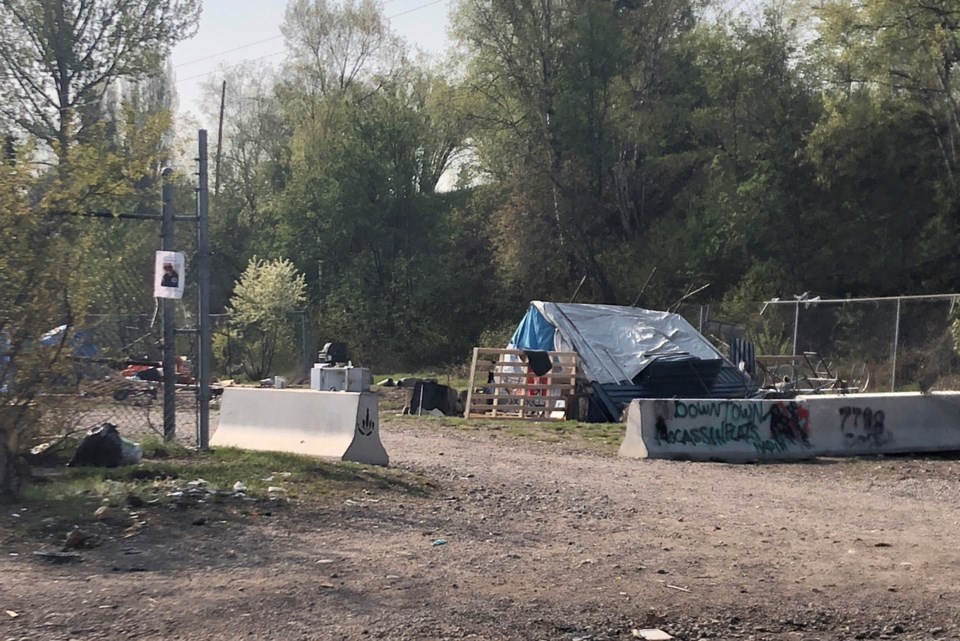Over the years I have helped many people move to their new homes. Never have I helped move someone to an encampment…until recently.
This past Friday, I was visiting my long-time friend Jeanie Wallis at her downtown store. For months, Jeanie had been telling me about a brain-injured woman and her caregiver who had moved from Moccasin Flats to B.C. Housing and were struggling to maintain their housing. They were served eviction notice, went to arbitration, lost, appealed, lost and had to move out of their apartment by June 2. Jeanie was going to help them move back to Moccasin Flats after she finished work that day. I offered to help.
I was introduced to Miranda Free and Rory Emery and a very disturbing story began to unravel.
Miranda has suffered multiple head traumas from a car accident, playing sports as a kid, then relationship violence that ended her career as a teacher’s aide. She and Rory met seven years ago. Although the romantic part of the relationship ended, Miranda’s brain injury required her to have constant support so Rory became her caregiver. This transition has worked well for these two kindred spirits.
In 2021, Miranda and Rory lived in a trailer at Moccasin Flats. Through B.C. Housing, they moved into what was supposed to be a two-bedroom unit in an apartment building on Spruce Street. The second bedroom was locked the day they moved in and remained so for a year and a half when they were forced to move out. Miranda’s trailer at Moccasin Flats was removed as part of the city’s demolition efforts in November of 2021. Now they’re living in a tent.
Miranda provided me with all of the paperwork between them, B.C. Housing and the Residential Tenancy Branch. Miranda told me that for whatever reason B.C. Housing did not like her from the beginning. She said their treatment towards her was reflective of this. Their eviction was the result of letting people come and stay with them at the apartment, which was a breach of their tenancy contract. There were allegations of their guests stealing clothes from the laundry room. But there were no loud parties, arguments or fights. No drug dealing. Miranda and Rory made decisions based on what they thought was the right thing to do by providing their homeless friends with temporary shelter. But as marginalized folks, their moral compass pointed in a direction not understood by the powers that be.
My friend Jeanie has had Miranda and Rory clean her house, do yard work and wash the floors in her store to help them out with extra cash. She has described them as hard-working, honest and kind. After spending nearly four hours with them under extremely stressful conditions, I thoroughly agree with Jeanie’s assessment. Like me, the process of moving Miranda and Rory to Moccasin Flats was traumatizing for Jeanie as well. She told me if tenants like Miranda and Rory were being evicted there is “no hope” for the rest of the homeless to be successfully housed.
Folks on disability benefits or income assistance cannot afford current market rent. Eviction forces people like Miranda and Rory to become homeless with no options besides living in a tent. Our system is so broken that it’s ineffective to adequately deal with our housing crisis. Housing options are not working for the marginalized because they are set up for failure. The revolving door traumatizes people who already suffer from complex trauma and drives them further into addiction, mental and physical health deterioration and feelings of despair and hopelessness. Why is this vicious cycle of mistreating and abusing the vulnerable allowed to continue?
Diane Nakamura is a Prince George writer and retired social worker.



